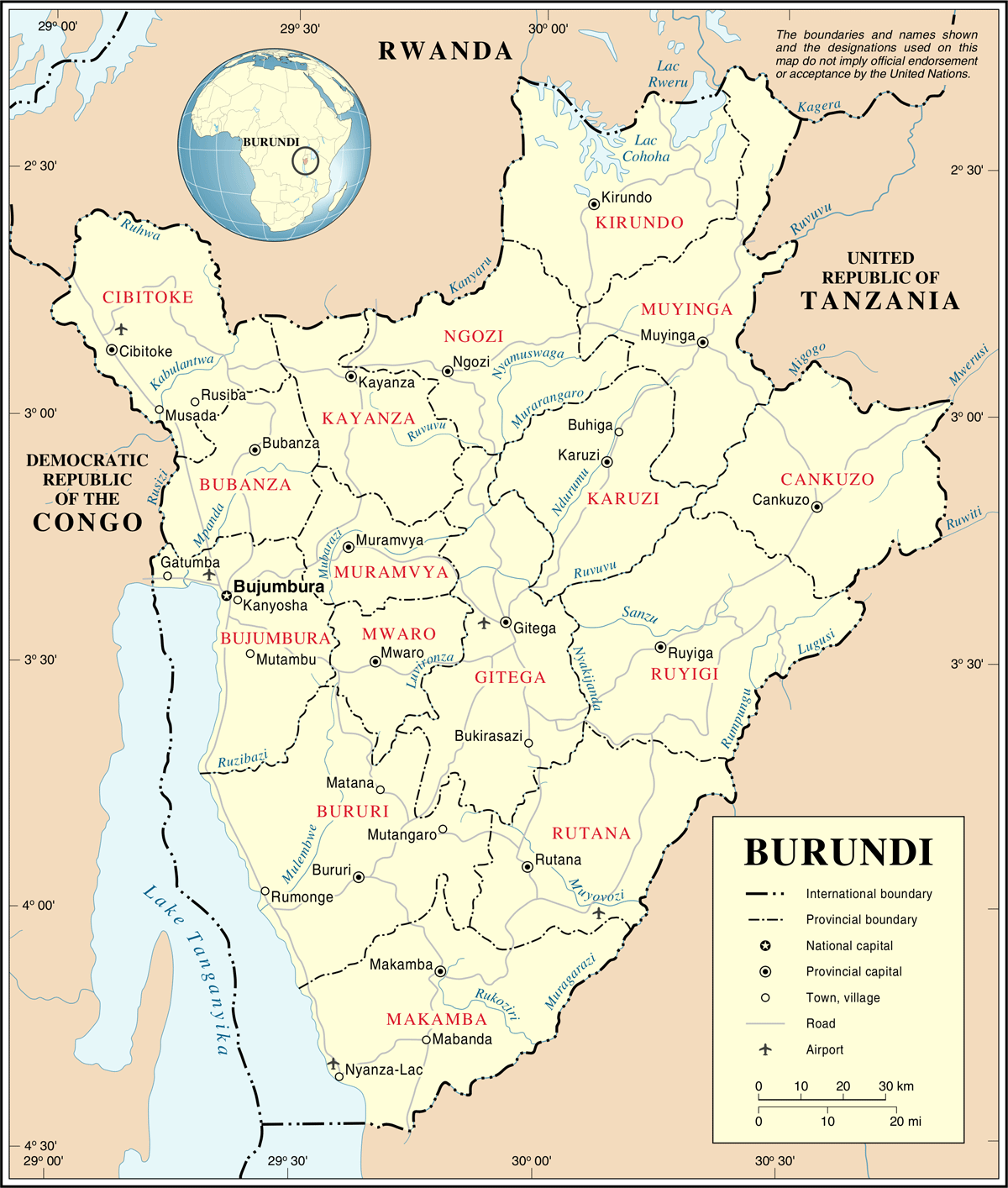May 08, 2020

By Eric Ross
Citizens of the small East African nation of Burundi are due to go to the polls on May 20th with the promise of choosing a new president for the first time in fifteen years. But amid an ongoing campaign of repression by the ruling party, a rapidly narrowing political and civic space, and a global pandemic, the elections could trigger more violence and suffering for Burundi—a country that has experienced genocide in the past.
Burundi has been among the twenty countries at highest risk for a new mass killing each year since 2016, according to the Early Warning Project’s Statistical Risk Assessment, ranking 15th for 2019-20. Separately, based on its investigation into human rights abuses, the UN Commission of Inquiry on Burundi has expressed grave concern for the risk of election-related violence this year.
History of Mass Atrocities
Countries that have experienced mass atrocities in the past are at an increased risk for future mass violence. Civilian populations in Burundi have suffered from a series of mass atrocities, including mass killings amounting to genocide against Hutus in 1972 and Tutsis in 1993. Furthermore, an estimated 300,000 Burundians were killed in a civil war lasting from 1993-2005.
The twelve years of civil war were followed by elections in 2005 in accordance with the 2000 Arusha Peace Agreement. Former rebel leader Pierre Nkurunziza became president with his National Council for the Defense of Democracy – Forces for the Defense of Democracy (CNDD–FDD) winning a legislative majority.
Despite the Arusha Agreement and the Constitution stipulating a two-term limit for the president, Nkurunziza decided to remain in the running in 2015 and was elected to a highly contested third-term. This decision threatened Burundi’s burgeoning democracy and jeopardized a fragile peace. The controversial move also sparked widespread street protests and a failed coup attempt. In the government crackdown that followed, more than 1,200 Burundians were killed from 2015-2017 and 400,000 civilians were forced to seek refuge in neighboring countries.
Although Nkurunziza announced in June 2018 that he would not seek re-election in 2020, state-sponsored abuses by ruling party supporters have continued in the lead-up to this month’s election. A September 2019 UN Commission of Inquiry report found that since May 2018, the ruling party, primarily through its youth league, the Imbonerakure, have committed serious human rights violations and crimes against humanity. These violations included summary executions, forced disappearances, torture, and sexual violence, which in sum has created an environment of repression, fear, and impunity within Burundi.
Additional Risks Ahead of Elections
In March 2020, the Commission of Inquiry reiterated its concerns from the September 2019 report, warning of the potential for election-related violence. “The eight risk factors common to criminal atrocities applied to Burundi in the Commission's September 2019 report, are still present, and some even more marked than before,” according to the Commission’s statement.
This risk has been further exacerbated by a growing resentment against the ruling party due to an Imbonerakure-led policy of economic extortion, in place since 2017. The policy comes in the form of forcing Burundians, many of which live well below the poverty-line, to pay “voluntary” contributions to help fund the May 2020 elections, although there has been no official oversight for how the money is actually being used. The contribution scheme can be traced back to 2015 when much of the foreign assistance to Burundi dried up after reports of human rights abuses in the wake of Nkurunziza’s engineered third-term.
The public health crisis emanating from the global spread of COVID-19 presents a new wildcard. The elections are scheduled for May 20, 2020, but if they are postponed at a late stage in the name of combating the spread of COVID-19, protests and further crackdowns could ensue. On the other hand, proceeding with the elections and associated large campaign events risks accelerating the spread of the virus in a country with extremely limited healthcare capacity.
Conclusion
This tragic history of violence in Burundi has made it a focus country for international efforts to prevent mass atrocities for years. Based on fears that a 2015 political crisis might return Burundi to civil war or even genocidal violence, the United States government and other international actors took a series of actions to address these risks in advance. As bad as the human rights situation has been since 2015, the fact that the worst case scenarios have not come to pass is at least partly a testament to the action taken by the US government and international community.
The ongoing trend of government repression and impunity, however, means that the risks of mass atrocities in Burundi remain all too present. Even if violence does not materialize in the context of the upcoming elections, the risk to civilians will remain so long as the ruling-party continues its efforts to undermine the fragile peace in place since 2005.
Eric Ross is a research intern with the Simon-Skjodt Center.
View All Blog Posts